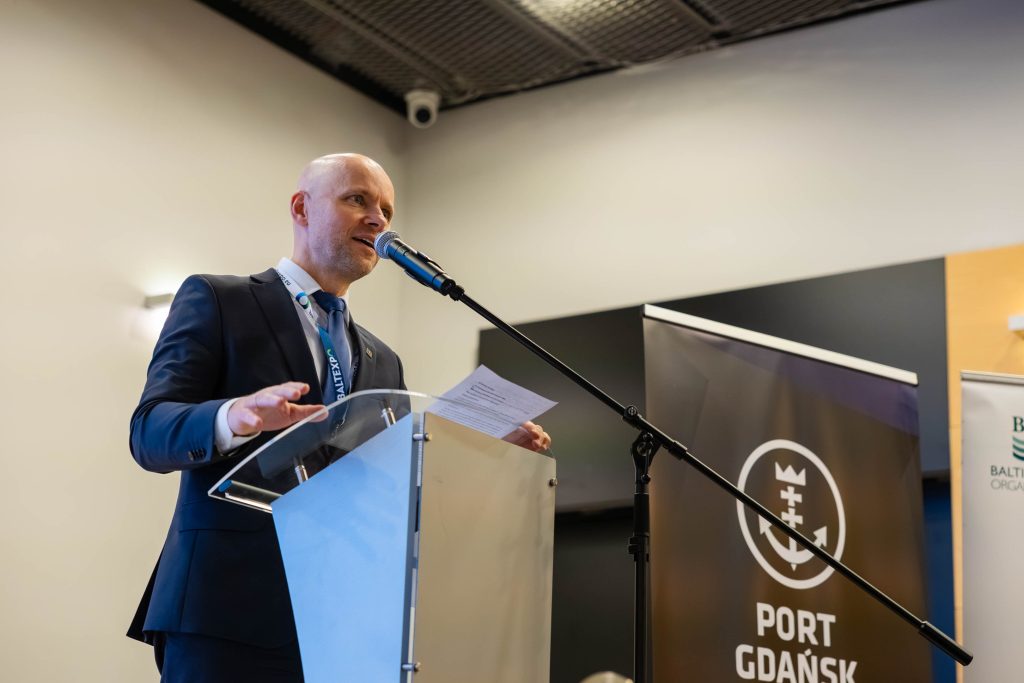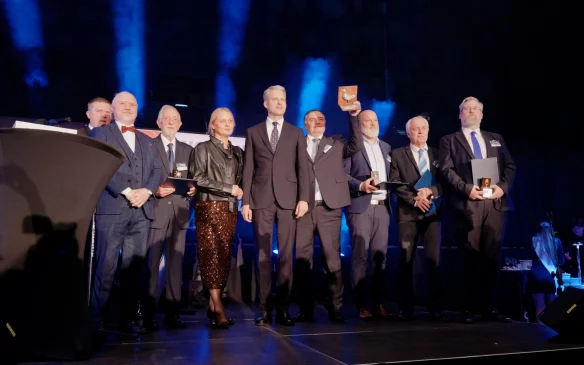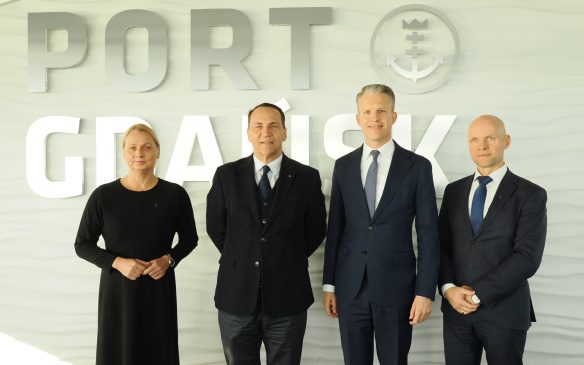Vice-President of the Port of Gdańsk heads the Baltic Ports Organization

The Port of Gdańsk was honoured to host the Baltic Ports Conference, an event held annually by the Baltic Ports Organisation. This year’s conference was held on 7 and 8 of October, during the 23rd BaltExpo International Maritime and Military Fair of 2025 in Gdańsk. During the conference, a new BPO Chairman was elected. Alan Aleksandrowicz, Vice-President of the Port of Gdansk, was appointed to head the organization.
This year’s edition of the Baltic Ports Conference coincided in time and place with BaltExpo, the leading maritime economy and military event in Central and Eastern Europe.
The conference focused on the prospects for sea port development in the face of modern challenges, as well as pro-environmental solutions and safety issues in the maritime sector.
‘As all of you are aware, we are living in difficult times and they make cooperation more important than ever. Our sea ports are the gateways of the world. Let us build links between them and work together’, said Arkadiusz Marchewka Vice Minister of Infrastructure for Maritime Economy and Inland Navigation to the attendants.
The event’s host, Port of Gdańsk, was represented by Vice-President Alan Aleksandrowicz.
‘Sea ports mean much more than handling cargo. We need to be aware of potential conflicts, which makes our cooperation key. If one of the ports falls under some pressure, others will be affected. If some ports have innovative solutions, others can benefit from them. We need to be closer, understand one another and cooperate on the common goal of keeping the Baltic sea ports great’, said Alan Aleksandrowicz during the kick-off to the conference.
Cooperation with Ukrainian sea ports
The opening day of the conference was divided into three blocks. The first block concerned the dynamic changes on today’s market, while the remaining ones focused on energy engineering, environmental needs, decarbonisation, and innovation.
The first block was opened by keynotes from Łukasz Wojdyga of Warsaw Enterprise Institute and Maciej Matczak of the Gdynia Maritime University, who addressed the role of sea ports in European transformation and the future of the sea port sector.
Maksymilian Czapiewski (Port of Gdańsk), Edgars Suna (Freeport of Riga) and Per Fredman (Port of Södertälje) discussed the essence of sea port existence, which means cargo handling. They debated the question posed in the panel’s title: “Cargo is king (but is it everything?)” in the context of the evolving function of sea ports.
“The market changes, infrastructure stays”, and we cannot be afraid to invest even in unstable times like these. ‘The sea ports of our region operate in the most dynamically developing EU markets, and changes in the transport corridors unlock new development opportunities for us’, said Maksymilian Czapiewski of the Port of Gdańsk.
The block culminated in a presentation concerning the current situation of sea ports in war-torn Ukraine.
‘Of the eighteen seaports Ukraine had before the war, only six remain operational. Four ports are under Russian occupation, and three more are shut down due to safety concerns’, said Vitalii Vaidych, Director of Investments and the Public-Private Partnership at the Ukrainian Sea Port Administration.
Despite their difficult situation, Ukrainian sea ports are striving for active cooperation and integration into the European network. A proof of this was the memorandum of cooperation signed by the Ukrainian Sea Port Authority and the Baltic Ports Organization during the conference.
Concerning EU security and strategy
The second day of the Baltic Ports Conference focused on security, defence and the growing importance of sea ports in this context. The first session was led by Dorota Książkiewicz from the University of Gdańsk.
The key topics and ideas for the future of European sea ports, as established in the EU Ports Strategy, were presented by Isabelle Ryckbost, Secretary General of the European Sea Ports Organisation.
It was stressed that sea ports are critical to assured military mobility, especially given the Russian aggression on Ukraine and the resulting threat to the Baltic countries.
The final point of the substantive part of the conference was a discussion on balancing the security function of sea ports with their daily commercial operations. The attempt to reconcile pro-green and decarbonisation initiatives with defence requirements, which are often at odds, proved to be an interesting thread. The conference members agreed that regulations should define defence requirements on sea ports along with ensured security of operations.
The future of the Baltic Ports Organisation
There were also some important personnel decisions to be made during the conference; the general assembly of the Baltic Ports Organisation voted to appoint its new chairman, Alan Aleksandrowicz, Vice-President of the Port of Gdansk. The outgoing chairman, Kimm Naski, President of HaminaKotka Port, finished his term as the head of the BPO.
The next conference host was announced: the 2026 Baltic Ports Conference, to be held in Turku, Finland.
At the end of the conference, the participants went on a cruise on the waters of the Port of Gdańsk.


